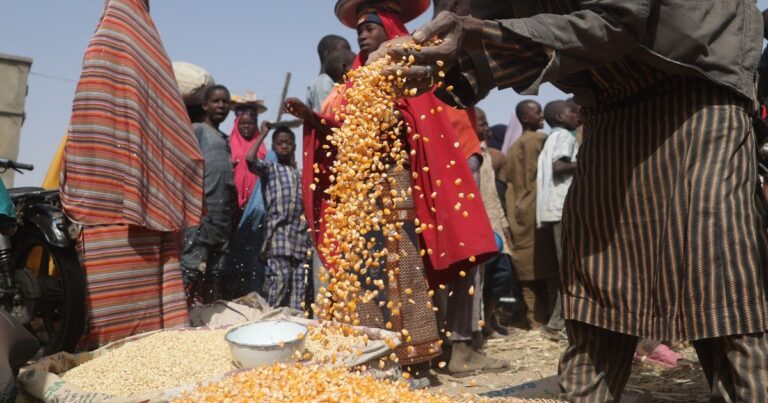UN agencies say double-digit inflation and stagnant local production are the main factors behind the food crisis.
Nearly 55 million people will struggle to feed themselves in the coming months in West and Central Africa as soaring prices have fueled a food crisis, United Nations agencies have warned.
In a joint statement On Friday, the World Food Program (WFP), UNICEF, the United Nations children’s agency, and the Food and Agriculture Organization (FAO) said the number of people facing Hunger during the June-August lean season had quadrupled over the past five years.
He said economic challenges such as double-digit inflation and stagnant local production had become major factors in the crisis, beyond recurring conflicts in the region.
And he noted that Nigeria, Ghana, Sierra Leone and Mali would be among the worst affected.
UN agencies said prices of major staple grains continued to rise in the region, from 10 percent to more than 100 percent above the five-year average.
The situation is particularly worrying in northern Mali, where some 2,600 people are at risk of catastrophic famine, the press release added.
“It is time to act. We need all partners to step up their efforts… to prevent the situation from spiraling out of control,” said Margot Vandervelden, WFP’s acting regional director for West Africa.
“We need to invest more in building resilience and long-term solutions for West Africa’s future,” she added.
Malnourished children
Food shortages have also led to “alarming” levels of malnutrition and children have been hit hard.
The agencies reported that eight in 10 children aged six to 23 months do not consume the minimum amount of food needed for optimal growth and development.
It also indicates that some 16.7 million children under the age of five suffer from acute malnutrition and that more than two out of three households cannot afford healthy food.
“For the region’s children to reach their full potential, we must ensure that every girl and boy receives good nutrition and quality care, lives in a healthy and safe environment and has the right learning opportunities “, said UNICEF regional director Gilles Fagninou. .
“To make a lasting difference in the lives of children, we must look at the whole child situation and strengthen education, health, water and sanitation, food and social protection systems “, he added.
The region’s heavy dependence on food imports has reinforced the situation, particularly in countries facing high inflation, such as Ghana, Nigeria and Sierra Leone.
Policies should be introduced to boost and diversify local food production “to respond to unprecedented food and nutrition insecurity,” said Robert Guei, FAO subregional coordinator for West Africa.


